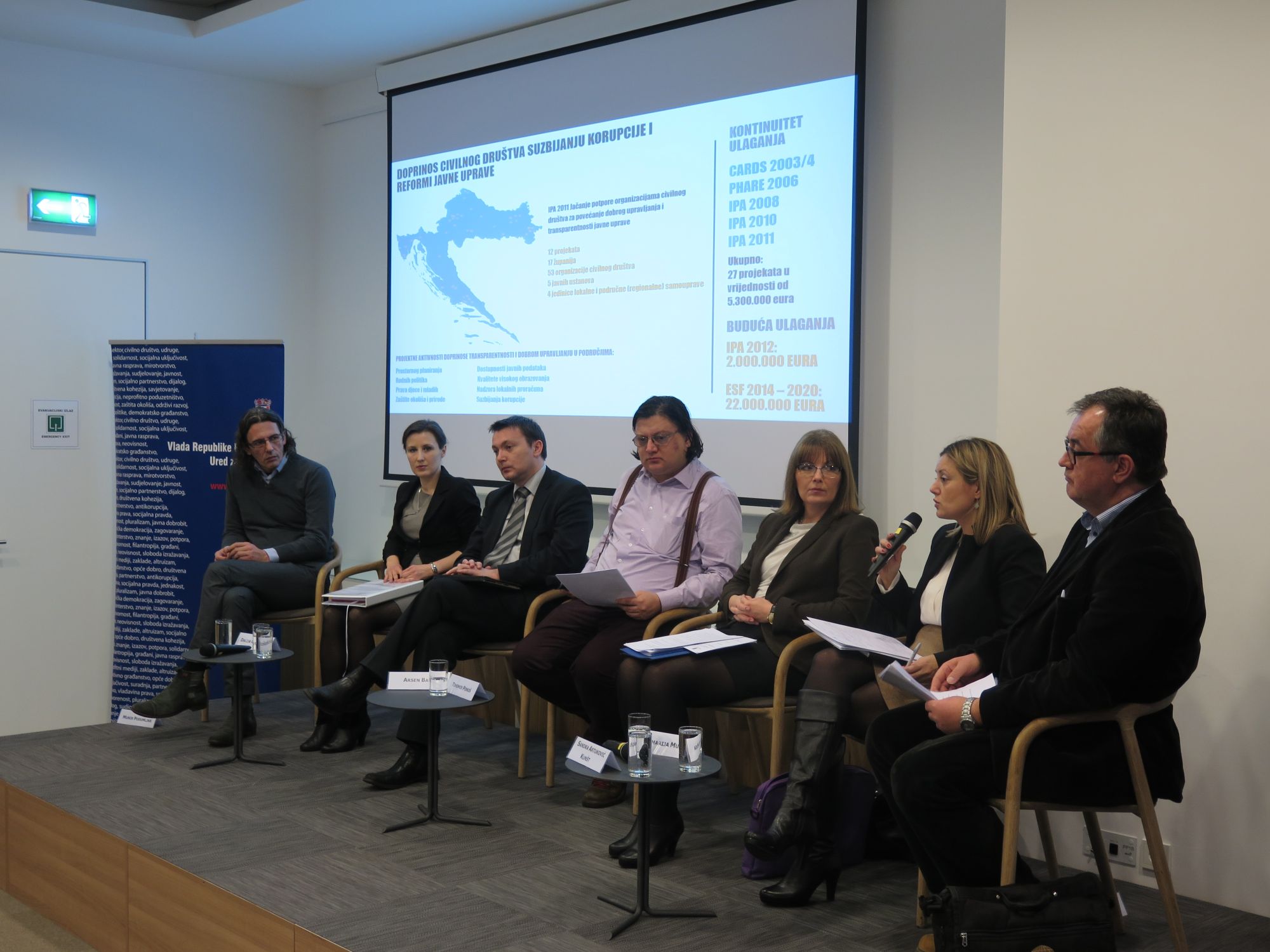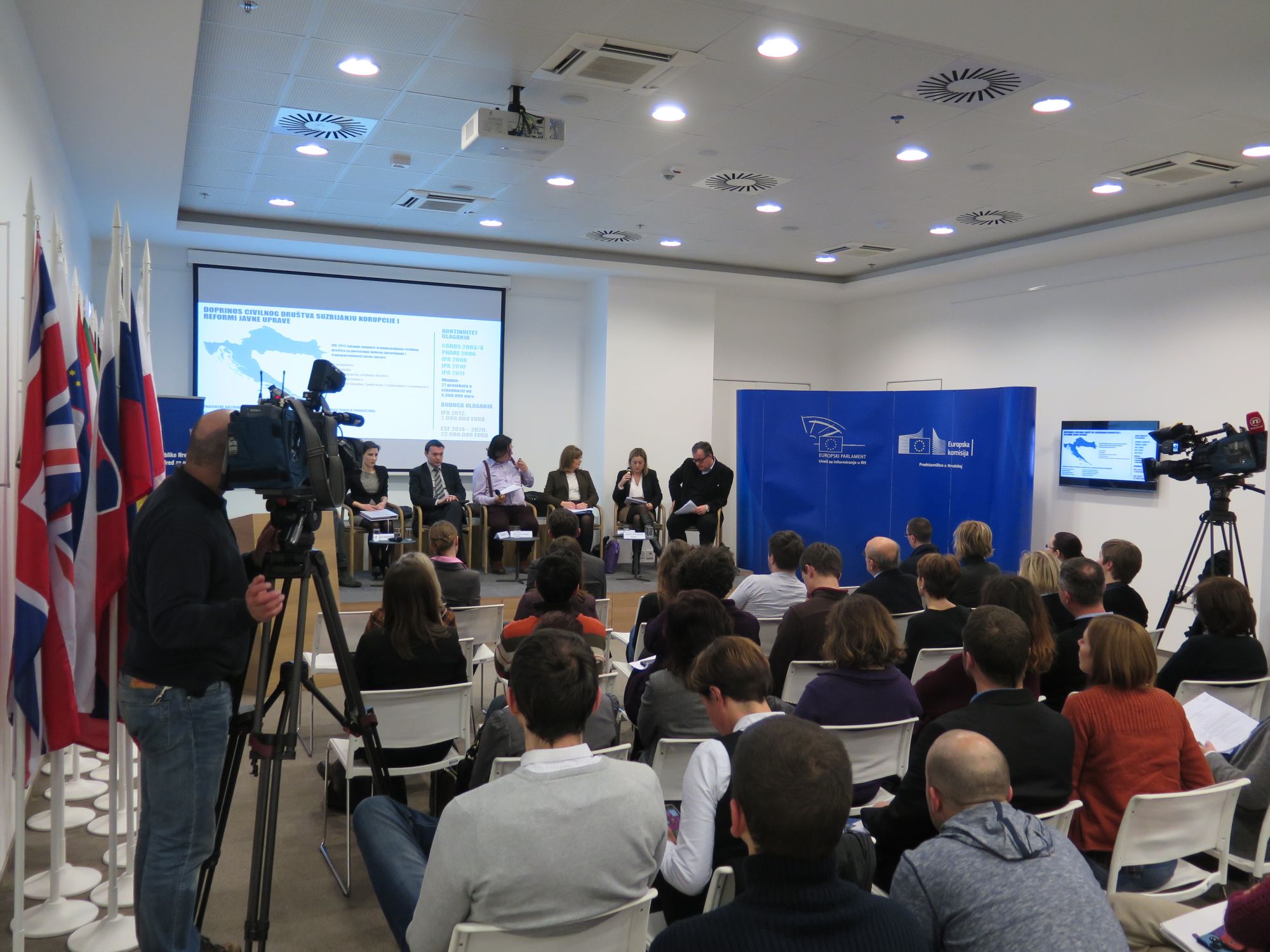On the occasion of the end of project contracting process under the IPA 2011 programme "Reinforcing Support of CSOs in Enhancing Transparency and Good Governance in Croatian Public Administration", the Government Office for Cooperation with NGOs organized panel discussion on contribution of civil society to combating corruption and public administration reform. The discussion was held on 5 February 2015 in the House of Europe in Zagreb.

Introductory note on the objectives and expected results of the contracted projects was held by Igor Vidačak, Director of the Government Office, Nataša Mikuš Žigman, Director of the Central Finance and Contracting Agency, and Branko Baričević, European Commission Representation in Croatia. Projects worth more than 20 million kunas are cofinanced by the IPA 2011 Programme and by the State budget allocations for the Government Office for Cooperation with NGOs, and will be implemented in cooperation of 12 associations and 50 partner organizations in 17 counties. These projects represent continuation of previous investments made through CARDS 2003/4, PHARE 2006 and IPA 2008, 2010 and 2011 programmes.

Panelists in the discussion were Arsen Bauk, Public Administration Minister, Sandra Artuković Kunšt, Deputy Justice Minister, Anamarija Musa, Information Commissioner, Dalija Orešković, President of the Commission for the Resolution of Conflicts of Interest, Zdravko Petak, Professor at the Faculty of Political Science in Zagreb and Munir Podumljak, activist from the NGO Partnership for Social Development. The discussion was moderated by journalist Tihomir Ponoš. Representatives of civil society organizations were active participants during the discussion.
A wide range of topics was tackled by the discussion, such as comments on the new Strategy for combating corruption in the period from 2014 to 2020, Action Plan for combating corruption and Strategy for public administration development as well as the Law on the Right of Access to Information. Minister Bauk announced the possibility of establishing the new Government Office that would deal with public administration development with the aim of better coordination of strategic activities in this area, while the Information Commissioner Musa emphasized the importance of the Open Government Partnership initiative as the mechanism for public authorities to get closer to citizens.
The efforts of civil society organizations have been recognized as critical for monitoring the public authorities and combating corruption. The necessity for objective reporting and active media work in combating corruption and in the active control of public bodies work has also been highlighted.
Moreover, the transparency of civil society organizations' activities is necessary, especially concerning the fact there are more than 6000 bodies in the system, many of them allocating funds to civil society organizations.
Finally, as all of the participants concluded, the establishment of the quality monitoring system of state and local bodies' work is not feasible without the contribution of active and strong civil society, as well as without corresponding financial support of the efforts, with the aim of enhancing the transparency of public authorities' work and combating corruption on all levels.
Page

